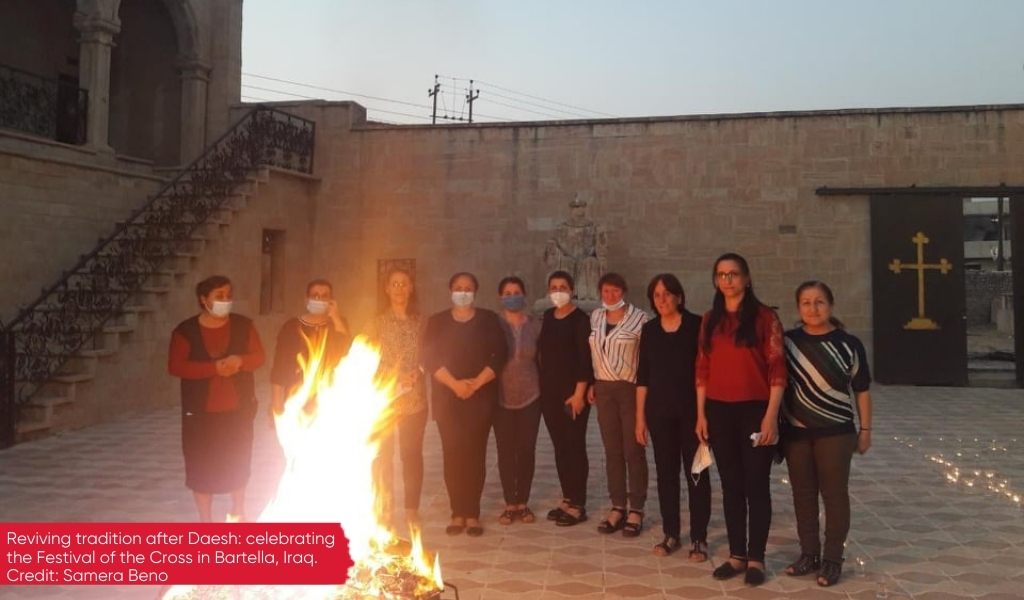Cultural heritage is fundamental to human dignity and identity. As part of the IDS-led CREID programme the rights of religious communities to practice and preserve their heritage is being recognised through an initiative to collect and document oral heritage in Iraq and Syria. On Human Rights Day, Dr Varteen Hanna, one of the Assyrian Coordinators for the project in Iraq, illustrates how cultural rights are human rights and that the ability to freely practice her heritage without fear or persecution is essential for the survival of her community.

Popular heritage forms a large part of social life in my town, Bartella, which is on the outskirts of Mosul in Northern Iraq and is closely related to the customs, traditions, and professions in the town.
As a predominantly Christian Assyrian town, the heritage has traditionally revolved around the church’s rituals especially during holidays such as Christmas, New Year’s Eve, Easter and Palm Sunday, as well as the customs associated with birth, baptism and marriage. Some of these customs may be similar to those practiced by Assyrian communities throughout Iraq, others however are specific to Bartella. One example of this is how on New Year’s Eve we prepare and serve a special dish called Kalia Zanki. This is made using dried fruits like apricots, raisins and figs, as well as goat’s meat and is shared by everyone as a symbol to say farewell to the past year and to welcome the new one with all its hopes and sorrows.
Reviving a 2,000 year old tradition as part of the fight to keep heritage alive
One of the events linked to the town and which is always in my memory is the Carnival of the Cross. This has been celebrated for almost 2,000 years in Bartella, in commemoration of the discovery of the cross by Queen Helena. The story tells of how the Queen used fire to deliver the news of her discovery of the true cross to her son, King Constantine, in Constantinople (now Istanbul). To commemorate this, we light a fire in the town square every year on 14 September.
In previous years, the people of the town prepared for the celebration by gathering the necessary materials needed to light a flame, such as thorns, twigs or cow dung. They would carry candles in the form of a cross and congregate next to Beira Dabaysi (Issa’s well). From there, there was a clear view of Mount Maqloub (Mount Marmati the Hermit), so that after the fire was lit on the mountain, it would be lit in the town. The celebrations would continue over the following days with songs, games and visits between families to congratulate people whose names are Salyo or Saliba, which means Cross. These festivities would also incorporate Saint Matthew the Hermit’s day who is the patron saint of the town and is commemorated on the 18th September.
In 2014, Daesh took control of Mosul and the surrounding areas including Bartella, forcing myself and other residents to flee the area, changing the demography and social life of the town. To this day, a significant proportion of the population of Bartella remains displaced having left for other cities, such as Erbil in Iraqi Kurdistan, or to Jordan.
While we continue to fight to keep our heritage alive, this has resulted in changes to our customs and practices in order to feel safe. This means that some traditions are struggling or are at risk of dying out. In recent years, only a small number of people were able to gather for the lighting of the fire in Bartella. However, new traditions are also emerging as we have begun to mark the event with a cross made of electric lights on our homes.